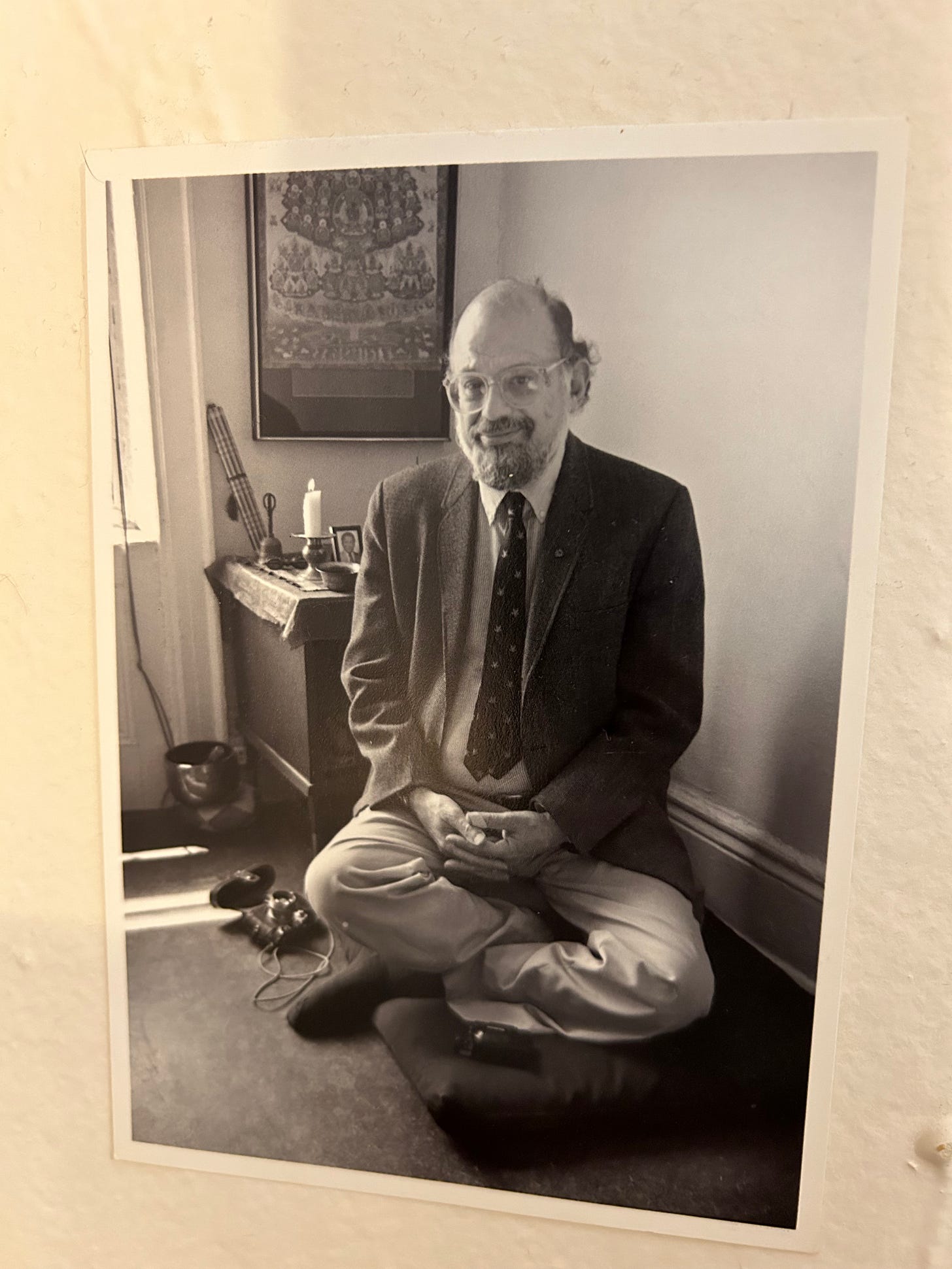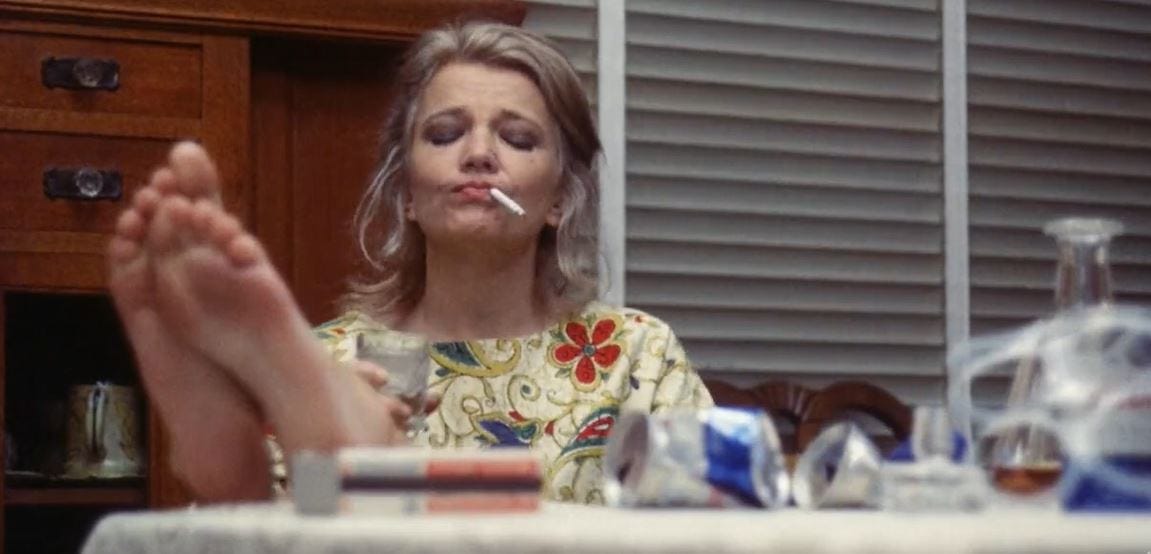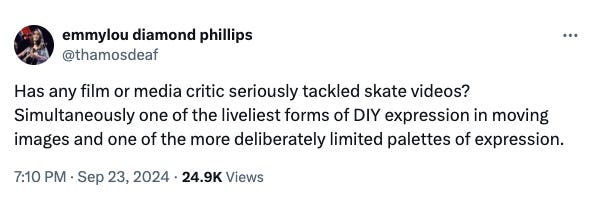Newsletter - September 30th
Is Writing like making Bread? Is a simile better than a metaphor? Is writing bread?
Welcome back to the Bread & Poems newsletter, your source for internet-based banter about similes and metaphors. Choosing a favorite between similes and metaphors is like trying to choose a favorite movie. Nearly impossible. That was a simile. For a long time I was unclear about what was what or which was which. But if I’ve learned anything in my almost 30 years of life it’s that a simile uses “like or as” and a metaphor just says one thing is another. This newsletter is awesome. That’s not a metaphor. This newsletter rocks. Also not. This newsletter is a rock. There we go, that’s a metaphor.
It’s our job to pay attention to words here at the newsletter, so you can believe that it caught our attention when instead of describing himself as a stylist in the New Yorker, the stylist Law Roach said that he preferred the term “image architect.” Now we’re talking. The equivalent in this newsletter is saying that we are not writing a newsletter we are conducting literary excavation using cool little dusting tools to un-earth stegosaurus nose bones.
In an interview with the Toronto Review the poet Alice Oswald said on the subject of the similes and metaphors:
I’ve always loved simile. One of the reasons is that simile keeps both worlds alive at the same time whereas metaphor changes one for another. So you get this beautiful kind of doubled feeling with the simile. You don’t lose anything. It’s like a theatre curtain. You get the feeling of the artifice and reality going on at the same time. And this beautiful pivotal word ‘like’ or ‘as’ allows the thing to exist in two places at the same time. I love that. And I was always, again I’m afraid it’s Homer, but Homer has these extended similes which find a point of likeness and then go on long enough that they become unlike what they were describing, so it turns into a dis-simile half way through and I just love that because it gives you such a feeling of a kind of growth of word form. That’s how language works. It starts off doing something and then it’s still alive and ends up doing something else.
In the last newsletter I was trying to talk about how Writing is similar to making Bread. Which is a big part of the reason I resonated with this Alice Oswald quote on simile vs. metaphor. Is Writing like bread or is Writing Bread? I was thinking things like: "Why is writing like making Bread?" and "How is the process of making Bread similar to the process of making writing?" Going (I) even so far as to think: "If this is the Project of your Life you are going to have to figure out if these two things are parallel pursuits. Would taking time to become a better writer hinder or help your development as a baker and pizza-maker and general cook of foods?" I was going even that far. So are the two paths connected through metaphor or simile? Are they similar or are they really one Thing? Does making them one Thing rob the other of its independent power?
What set me off on this path, as I explained, was the sentence: "Writing is like making Bread." Well, now that I say that, though, writing is like a lot of things. Writing is like walking. Writing is like being young and learning the rules and having to follow them, and then later you still follow the rules but think about them less. The rules get inside of you. As I continue here I want to note a few capital letters of note. Writing and Bread. If another noun is capitalized further on in the piece just know I am trying to give it some power, blowing it up like an inner-tube for a creek.
Writing is knowing the difference between and Image and description. They are really very different things.
Writing is knowing that you need to have an ear. You need to be able to hear the music of the words
Writing is also knowing that you need to have a sense of a line
Writing is waiting just around the next bend. It is draped over a downed tree just around the next bend. You will have no choice but to crawl over it.
You need the sense of the line and where it leads.
Writing is like gum recession. Writing is like doing the laundry and forgetting about it in the washer and having to wash the clothes again because they stink.
Writing is like a bookstore because inside of a bookstore you are surrounded by a dense collection of words in a contained space. The bookstore of your own mind is the metaphor here. While it is often joked about, it actually is possible to consume words via osmosis. So in a bookstore you just need to touch the books and look at their size and shape and — god forbid — deckled edges, and you can experience the books by touching them.
Writing is trying to decide which of the senses has been devalued most by Modernity and needs to be re-awoken by Poetry. And then re-awakening them as an act of service to Modernity.
Writing is finding the problem that your writing is solving. Writing is figuring out if you are filling a niche or adding something new to the conversation.
Writing is figuring out your place in the marketplace. Where you fit in a market.
Do you fit in an open-air market on the outskirts of Paris? With other trinket-collectors? Trinket is derisive. Trinket is derogatory. Treasure is too precious. The point being, actually, that your Writing is in a market and needs to be sold.
Writing is seeing, at long last, that Allen Ginsberg looks like David Cross.
Writing is knowing that there is an ur-text.
Writing is done by people who understand that there is a lost root of collective consciousness that only Poetry can reignite. Imagine a cartoon in the style of the Fantastic Mr. Fox where a cord is lit at one end and it sizzles all the way to the other before exploding in a cartoon-ish BANG. That cord is the connection to the collective sub-conscious which will only be experienced in small, plosive moments. Writing is knowing that writing such a thing down would be hard to do.
Writing is knowing what is worthwhile and what is a waste of time.
Writing takes time.
The dead husband in Anatomy of a Fall seemed to know this intimately before he died. He made his own life and ended up dead on the ground outside the house in the snow in the sun. Tedious.
Writing is like getting dressed. Everyone has to do it.
Writing is like whatever Gena Rowlands had to do to act like that.
Writing is dense.
Writing is like a river-beach full of rocks perfect for skipping. Writing is like that beach because certain words feel like good skipping stones. I could not, for the life of me, say one. But you know what I mean.
Writing is like a closet with thirty shirts in it. And you only like maybe five of them.
Writing is voice.
Writing is like a voice but, also, however, quieter.
Writing is a voice interrupted by commas.
Writing is definitely a house and an apartment. Writing is home.
Writing is trying to get everyone on your team. Writing is waving your hands in the air at the far end of a field. Hey, over here.
Writing is embarrassing.
Writing is being replaced by video, which is possibly more embarrassing. Substack, the new economic engine for video-writing.
Writing is pulling a shot of espresso.
Writing is the actual espresso which leaves room for the coffee beans, water, coffee machine, and elbow and arm and forearm of the person making it to all be other things that eventually lead to Writing.
Writing would be figuring out each of those metaphors.
Writing is the shore of Maury Island as it receives the waves of water that a tanker in the middle of the Sound displaced. The inevitable ship, the beacon of commerce carrying cranes and trucks displaces the water and then the waves fall onto the shore and the Writing is the shore that receives the water. That is the writing. And the tide also goes in and out so you have more or less submerged shore as Time passes. But even when the whole shore is exposed there is still good stuff happening. It's just not Writing yet.
Writing is stored on the internet. The internet is a place like a shore is a place. Lots of stuff is kept on the internet with the knowledge that it won't last forever. But who will? If we're being honest.
Writing is transformation like Bread is transformation. I couldn't say for sure what it means but both Writing and Bread are transmogrification.
The process of writing is also like the process of cooking a meal for people you love. The thinking, the planning, the scheming beforehand; the feeling about 80% of the way through the process that what you have created is an absolute waste of time and will be inedible; the diving pencil-dive-style into the cold water of discovery and the unknown chlorination; the ability, over time, to commit to this process because you do have tools at your disposal. After a long time you (general you) have enough experience to give you confidence to commit to that dive over and over again. And luckiest of all, maybe, you have people that you trust to actually read your work, to actually smell and taste your food. An engaged audience. It’s easier to find that for food than for writing, I would say.
—








Why is a raven 🐦⬛ like a writing desk? A simile from Lewis Carroll. And THIS is what I like about your writing. You send me on a journey of new knowledge (I did not know the word plosive) but also memory. I end up questioning assumptions, some mine and some yours. Do we all have to write? I know I believe there would be a lot of value if we all DID write; value both to the individual and to the collective. Thanks for giving me permission to stop and think.